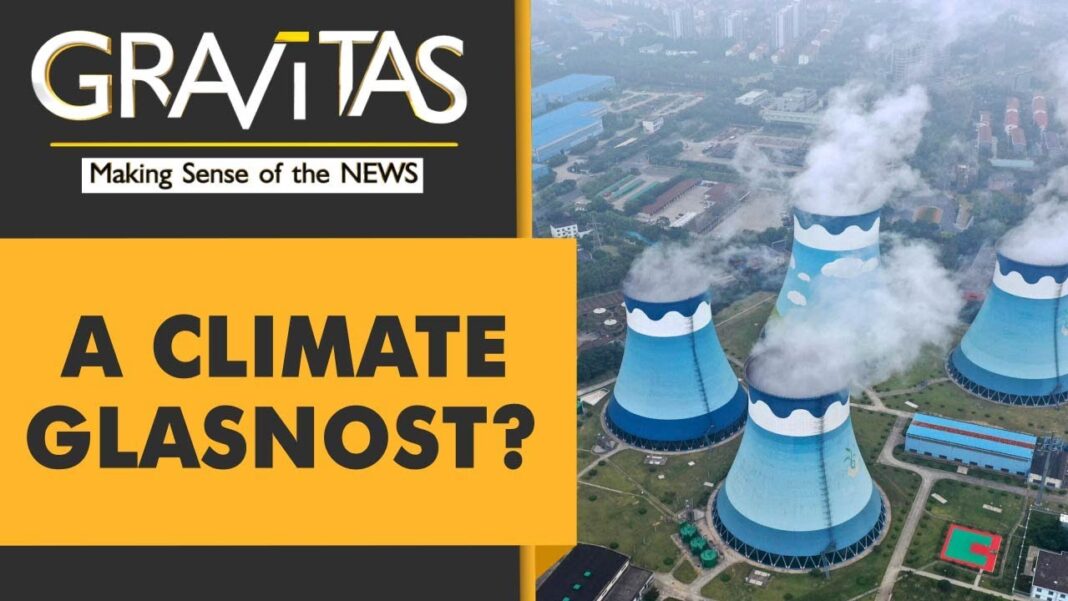
As COP26 drew to a close, the great and the good who converged on Glasgow, Scotland, appeared relatively united in rhetoric, if not in enforceable commitments.
Their views have been clear. For the world to slow human-caused global warming, fossil fuels—particularly coal—must largely, and quickly, be abandoned. The final language in the COP26 decision text “calls upon Parties … to accelerat[e] the phase-out of unabated coal and of inefficient subsidies for fossil fuels.”
By the time the Glasgow Climate Pact was approved, the leaders of more than 40 countries, along with the governors of Hawaii and Oregon, had already signed the “Global Coal to Clean Power Transition Statement,” which commits parties “to rapidly scale up technologies and policies in this decade to achieve a transition away from unabated coal power generation in the 2030s (or as soon as possible thereafter) for major economies and in the 2040s (or as soon as possible thereafter) globally.”
Although the United States hasn’t signed that statement, U.S. climate envoy John Kerry told Bloomberg on Nov. 9 that the United States “won’t have coal” by 2030.
In his remarks to COP26, Chinese leader Xi Jinping, praised by Kerry for pledging to cease funding coal projects outside China, touted the Chinese Communist Party’s (CCP) recent directives on peaking carbon emissions, which vowed that “coal consumption will be reduced at an accelerated pace” as part of the country’s 14th and 15th Five-Year Plans.
It isn’t clear if anyone has asked Little Amal, the gigantic puppet of a Syrian refugee who took to the stage in Glasgow to deliver seeds signifying the future climate work to be done, what she thinks about Old King Coal. But with influential friends such as The New York Times and Bill McKibben’s 350.org, it’s hard to imagine Amal being made to show anything like approval.
For self-appointed climate changers, coal is an easy target. It produces more carbon dioxide emissions than natural gas, diesel, gasoline, or propane.
Additionally, although smokestack scrubbers can remove much of the sulfur dioxide and other pollutants in coal plant exhaust, such technologies aren’t used everywhere.
Coal mining also produces methane, another greenhouse gas, and can harm rivers, mountaintops, and other ecosystems.
The problems with coal and other fossil fuels are even easier to emphasize when the environmental harms of solar, wind, and other renewables are minimized or ignored.
Yet as winter approaches amid worldwide energy woes, one-sided rhetoric on coal is giving way to cold, hard reality. A crisis of not enough coal being available to meet the world’s needs may be in the offing.
Coal in Short Supply
Multiple U.S. coal producers have reportedly sold out of coal through the next year, with some reporting they have sold out or nearly sold out through 2023.
Additionally, statistics from the U.S. Energy Information Administration (EIA) show that U.S. coal stockpiles have rapidly dwindled, falling to just under 49 million tons in August from roughly 100 million tons in November 2009.
Coal prices have risen dramatically in recent months, swinging to a high of almost $270 per ton before falling to about $150 per ton in recent weeks—still 88 percent higher than at the beginning of 2021, according to reporting by the website Trading Economics on international benchmark prices.
On Nov. 15, Bloomberg reported that U.S. coal prices have reached highs last seen in 2009.







